Our southern neighbour Newcastle, has transformed itself from a grungy coal city on the coast to a buzzy, thriving, booming and popular destination. There are many reasons, but there’s one story of a man who has played a vital role. Marcus Westbury looked at his home town with fresh eyes and had an idea.
The results have inspired city fathers and councils around Australia to look at dying and despairing towns and think, could we do something similar and breathe life and energy back intou our towns and cities?
Marcus has written of how he renewed parts of Newcastle in a fascinating book called “Creating Cities.” Marcus has agreed for The Manning Community News to reproduce a chapter from the book. We think you’ll want to get the book after reading this!
Marcus Westbury is a broadcaster, writer, media maker and festival director who has been responsible for some of Australia’s more innovative, unconventional and successful cultural projects and events. He has also worked across a range of media as a writer, producer, director and presenter covering fields as diverse as culture, art, media, urban planning, sport and politics.
In 2008 Marcus founded Renew Newcastle with his own funds and energy. It’s a low budget, not for profit, DIY urban renewal scheme that has brokered access to more than 30 empty buildings for creative enterprises, artists and cultural projects in his home of Newcastle, NSW.
The Manning Community News has invited Marcus to come and visit our valley. He has agreed when time permits between his TV show and other commitments. We’ll let you know his thoughts after his visit.
Excerpt from “Creating Cities by Marcus Westbury:
CHAPTER TWO
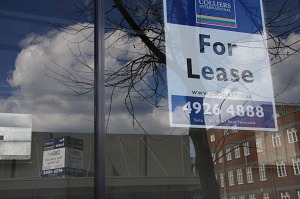
In late 2007 and early 2008, I found myself walking Hunter and King Streets, the two main streets of Newcastle, and the smaller streets that connected them. I was seeing them afresh—looking at parts of them up close for the first time in the best part of a decade. I spent two days peering in windows, noting down vacancies, taking camera-phone photographs and notes about particular buildings and likely spaces.
I knew Newcastle had seen better days, but what I saw on that weekend was confronting and depressing. Empty buildings featured faded ‘For Lease’ signs. Several still had real estate agent contact details featuring an area code that Newcastle had phased out in 1997.
I was there because I was at a loose end. I was between jobs, technically unemployed again but not as desperate as I had been a decade earlier. I had some money in the bank and some time on my hands. I’d been living in Melbourne for five years but was toying with the idea of heading home to Newcastle to start a small bar, gallery and performance space.
It is a sidenote to this story that the Australian state of New South Wales, where Newcastle and Sydney are located, had long had the world’s worst liquor licensing regime outside of Saudi Arabia. Cronyism, lobbying, and quirks of history had meant that for decades, liquor licenses had come bound up with the right to run slot machines.
It is a case study in extreme barriers to entry, patronage, protectionism, and insulating existing entrants from innovation or competition that is worthy of a book in and of itself. The state only offered a limited number of licenses and as a result, anyone wanting to set up a bar had needed millions of dollars to buy out an existing license and was lumbered with the expectation (and economics) of running a gambling den.
In the mid 2000s that changed, as the result of considerable community pressure. Small bar licenses were introduced and under the new system, I suddenly had the opportunity to realise a long-held dream. Initially it wasn’t much more than a thought bubble—an idea worth investigating. I bought myself a copy Running a Bar for Dummies and broadly familiarised myself with the relevant legislation.
I’d been peripherally involved in the licensing reform campaign and was able to pick the brains of some of the people involved. I convinced myself that Newcastle would embrace a more diverse drinking, dining, music, art and entertainment scene, and hopped on a plane for the hour-and-a half flight from Newcastle to Melbourne to do a bit of on-the-ground leg-work.
What followed was not the first (and hopefully not the last) time in my life that an enthusiastic interest in one idea has been derailed by the discovery of another.
Newcastle was dying. I thought I had no illusions, but everywhere I looked the rot was worse than I remembered. Streets that in my memories were vibrant, active, and filled with family and friends had fallen into disrepair and despair. Entire blocks were dominated by buildings that had been boarded up, gutted, and destroyed. As you entered the city from the west, there was a derelict hotel on one side and dust gathering on the empty glass of a new building that had never had a tenant opposite it.
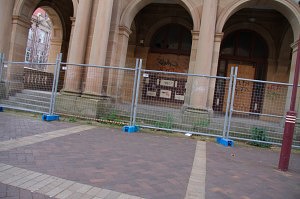
Up near the beach, Newcastle’s grandest building, the 1903-built Post Office with its domes, arches, and sandstone columns sat empty, tagged and fenced off. A few blocks away, the Victoria Theatre, the second-oldest theatre in Australia, sat broken and lifeless. The shop that had once occupied its foyer was abandoned. Windows were broken, seemingly inviting further decay.
The mall in between was more than half-empty. A contagious blight of abandoned spaces and boarded up windows had spread to the point where it had a toehold on almost every block. It was worse than I had remembered, worse than I thought it could ever become. The city felt like it was not merely slipping, but accelerating into decay.
On that walk I counted a hundred and thirty empty buildings. Mostly shops, but a few that were obviously offices and commercial buildings as well. I later realised that I’d missed many of them. For my small bar idea, it didn’t particularly deter me. I noted down a few buildings that were likely candidates and identified a few promising areas or precincts where my little bar idea might take root.
Given the massive number of vacancies, I was under the naive assumption that there would be plenty to choose from. It should, after all, be a renter’s market. I took my notes and my photographs, headed back home to Melbourne, and began to chase up the property agents.
Then things got weird. Over several months I contacted thirteen separate commercial real estate agents. I gave them a price range, one that seemed reasonable given advertised rates for some less suitable commercial properties, and generous given the state of the town; some thoughts on preferred but flexible locations, specific indications of what I was looking for and multiple contact details.
I said I was willing to pay for some modest capital improvements. I offered to fly to Newcastle from Melbourne to inspect any properties that might be likely candidates. My initial fear was that I might well be run off my feet with phone calls and offers.
I needn’t have worried. As I wrote in my blog at the time, my initial inquiries via email were a total failure. The total number of properties I was encouraged to look at was nil. The total number of phone calls received was nil. The total number of, “Thanks, but we don’t have anything for you at the moment” emails was nil. Indeed, the total amount of communication from anyone in the Newcastle real estate industry was… nothing.
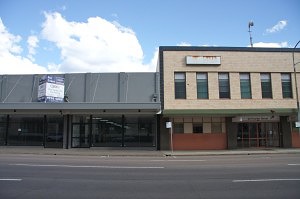
Picking up the phone to enquire about specific properties didn’t actually help much either. Many of the agents’ contact details I’d noted from windows were well out of date. They no longer handled the property. The owner who had engaged them no longer owned it or couldn’t be contacted.
Many were not, in any serious sense, on the market at all. Some owners were still holding out for rents that were unrealistic, or for potential tenants to return who hadn’t been seen for years. Agents were uninterested. A lot of property in Newcastle was actually owned by people who, despite the proliferation of ‘For Lease’ signs, weren’t even going through the motions of marketing them. More often than not, no one returned the calls.
There was also a failure of imagination. At one point I turned my attention to a particular building, one that I knew well and that a friend’s family had once operated a business from. Despite the building being on the market, available, seemingly in the right price range and seemingly suitable for the purpose, the agent simply couldn’t be convinced to show it to me.
The agent saw his role, apparently, not just as being a broker but also as an authority on what was and wasn’t a viable business model. He kept asking me what other businesses in the area were like my small bar. I frustratedly attempted to explain that changes to the law had meant that there couldn’t possibly be any precedents. You should come to Melbourne, I explained, there’s lots of small bars down here.
As we talked, it became increasingly clear that if he didn’t get it, he wasn’t interested. He had no reference points. He had no experience of or interest in the ideas I proposed. He felt no need to go through the motions of indulging me in a discussion about the price or particularities of an untested idea that he didn’t understand and wasn’t personally convinced by.
Perhaps that’s a strategy with some logic to it in a successful area. Actually it probably isn’t. But in an area where most of the existing businesses are closed or closing, this approach seemed almost painfully stupid. By definition the things most likely to succeed are the things no one has tried yet. Surely an untested approach—and lots of them—was exactly what the area needed more of… and urgently?
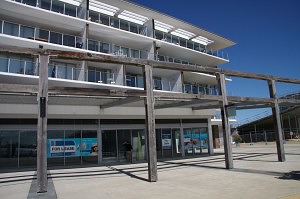
Something more substantial was wrong here. I lost sight of my original purpose—starting that bar is still on the long list of unrealised dreams—and became more and more intrigued as to why the market and the owners weren’t behaving the way Economics 101 told me they should.
An oversupply of properties should have led to a drop in the market price. So many sellers and so few buyers in the market should have meant that agents and owners were falling over themselves for my business. But the response to my approaches was indifference and lack of interest.
It was a diagnosis out of kilter with the debate that the city was having at the time. The debates in local papers or in political circles had always begun from the premise that the reason the city was failing was due to a lack of interest and investment. No one wanted to do anything there. But as I had directly experienced, this wasn’t always true. What if the problem was more complex? What if the problem was not that no one wanted to do anything but that those who wanted to, for whatever reasons, couldn’t?
The problem for me was not entirely new. My friends and I had experienced similar issues ten or fifteen years earlier, when the city was nowhere near as far into its downward spiral. When we were twenty-somethings, my talented but almost universally undercapitalised friends and colleagues had a stream of ideas for projects and businesses from cafés, shops, studios and galleries and various other marginal propositions.
As we left university or entered the workforce with no realistic possibilities of finding a job, so many of us were, initially at least, attracted by the idea that we would make our own work. That we could start our own businesses, or at least make our own fun. But we always hit road-blocks of the bureaucratic and practical kind.
When we did actually manage to find a place, we used it to establish a community organisation with pooled unemployment loans founded in an old warehouse. It is still going strong in another location to this day.
When I was younger, I had put a lot of these problems down to inexperience. The city’s establishment was probably right to be wary of a bunch of pretty rough-and-ready young guys with ill-defined ambitions, suspicious haircuts and questionable capacity. But in the years since, Newcastle had been going backwards, deteriorating and seemingly getting more desperate while my own level of experience had increased dramatically.
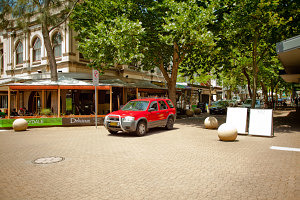
Here I was in my mid-thirties, established, financially capable, confident in my own abilities. I felt like I was back at square one, incapable of getting most real estate agents to return my call. When they did, they were overtly treating me like some kind of idiot because I wanted to do something different.
I wasn’t alone. As I incredulously recounted my experiences to anyone who would listen and wrote about them on my blog, it became obvious that my experience wasn’t an aberration. It turned out that Newcastle was full of similar stories. Shops that never opened. Offices that never existed. Galleries and studios that ended up elsewhere.
Over beers and coffees, in phone calls and emails, a pattern started to form. The people being shut out were people with ideas but little access to capital, networks, or professional expertise. Their ideas and efforts—whether they were good, bad or indifferent—were never given much of a chance. The system was, in effect, designed all wrong for their needs. A city in desperate need of imagination, effort, and ideas had inadvertently created a whole series of barriers that made it unlikely, if not impossible, for people to try them there.
The city had changed a lot since I was younger. But perhaps the biggest change that had taken place over the last fifteen years was in me. Once I may well have been inclined to tilt at the problems by getting angry with the agents and the owners. I thought about it. I registered the domain name stoptherot.org and briefly contemplated an angry campaign of plastering empty shop windows with protest signs, writing ranty op-eds against stupid landowners, and picketing real estate agents.
Fortunately the 2008 version was more patient and a little luckier. I now found the problem to be compelling. I was at a loose end, I had time on my hands, and I needed a new obsession. It was a dynamic that needed pragmatism more than protest. I gradually got sucked into asking why the city wasn’t working for people like us, and how it might be made to work. Something systemic was wrong here, and I turned my attention to trying to figure out what that was.
From “CREATING CITIES” by MARCUS WESTBURY. Available from Niche Publishing, Big Country Book Club and bookstores.
